【2023】Stakeholder Dialogue
"Support for sustainable tourism destination management"
~Exploring further possibilities for the future from the initiatives that won the FY2022 ALL JTB AWARD Sustainability Prize~
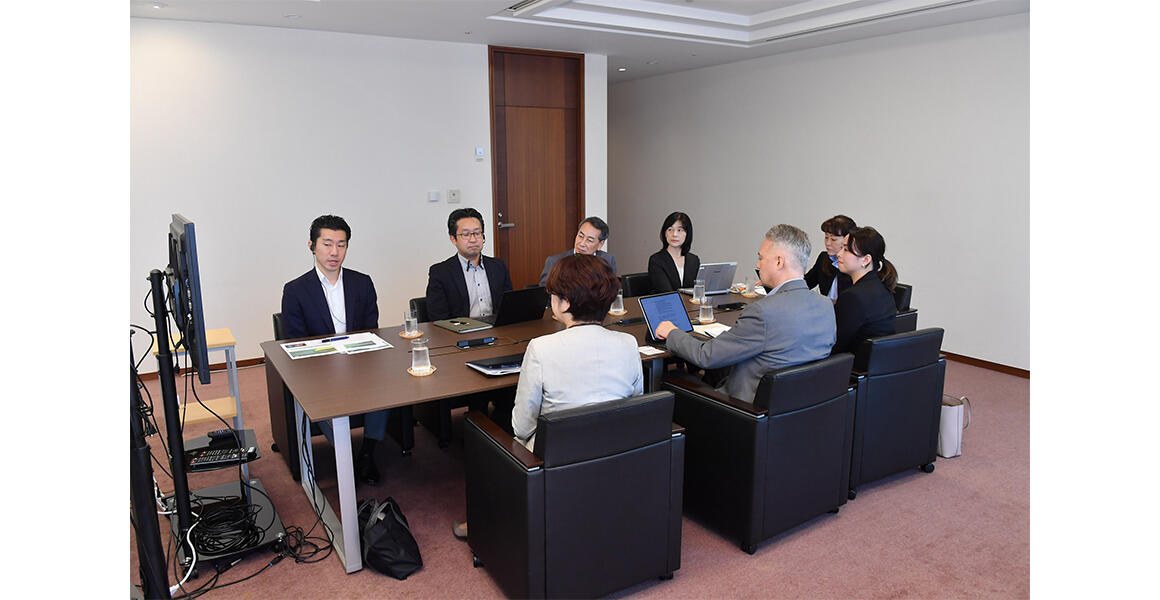
September 26, 2023
Stakeholder Dialogue
<Images of the participants>
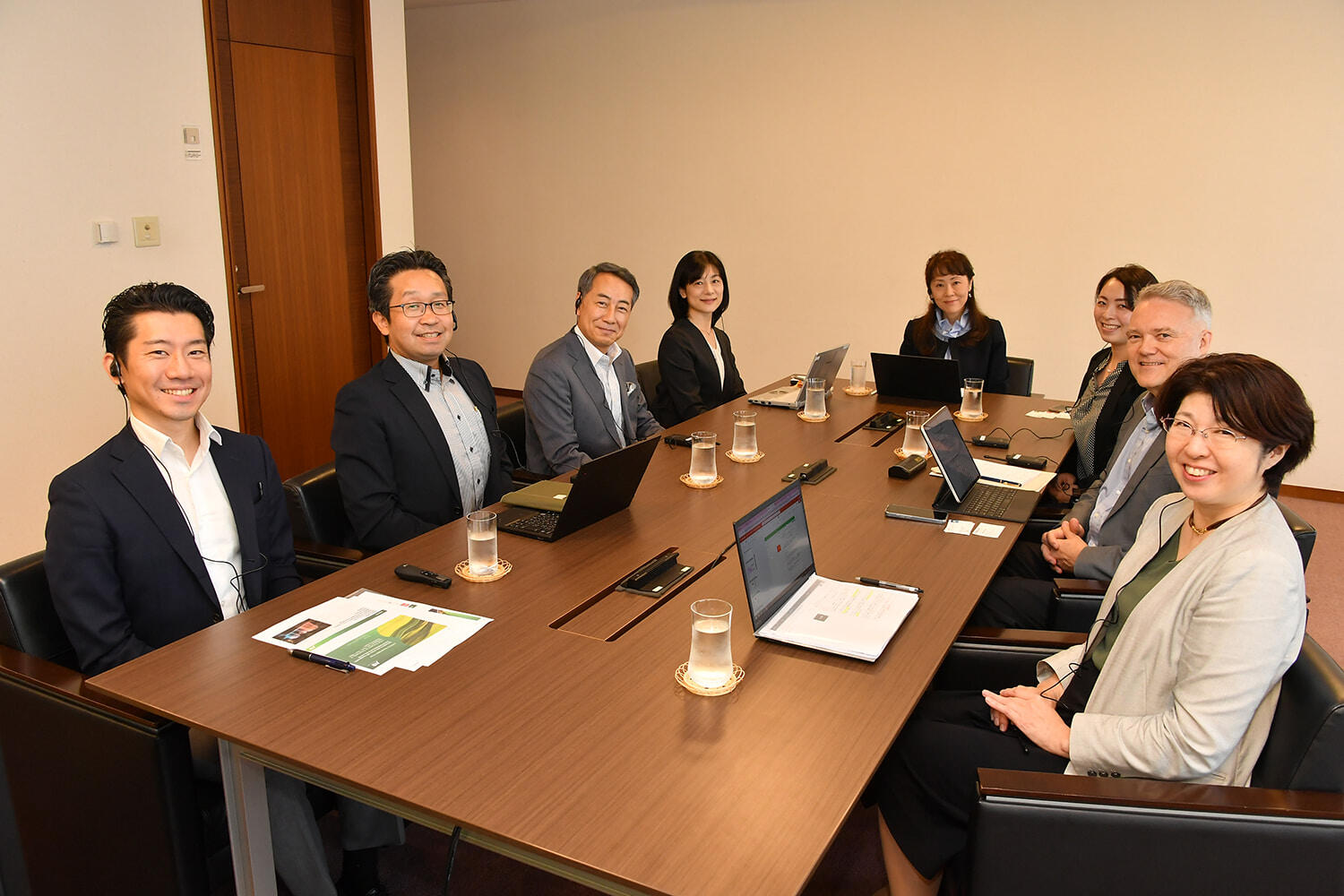
Expert participants
GSTC(Global Sustainable Tourism Council)
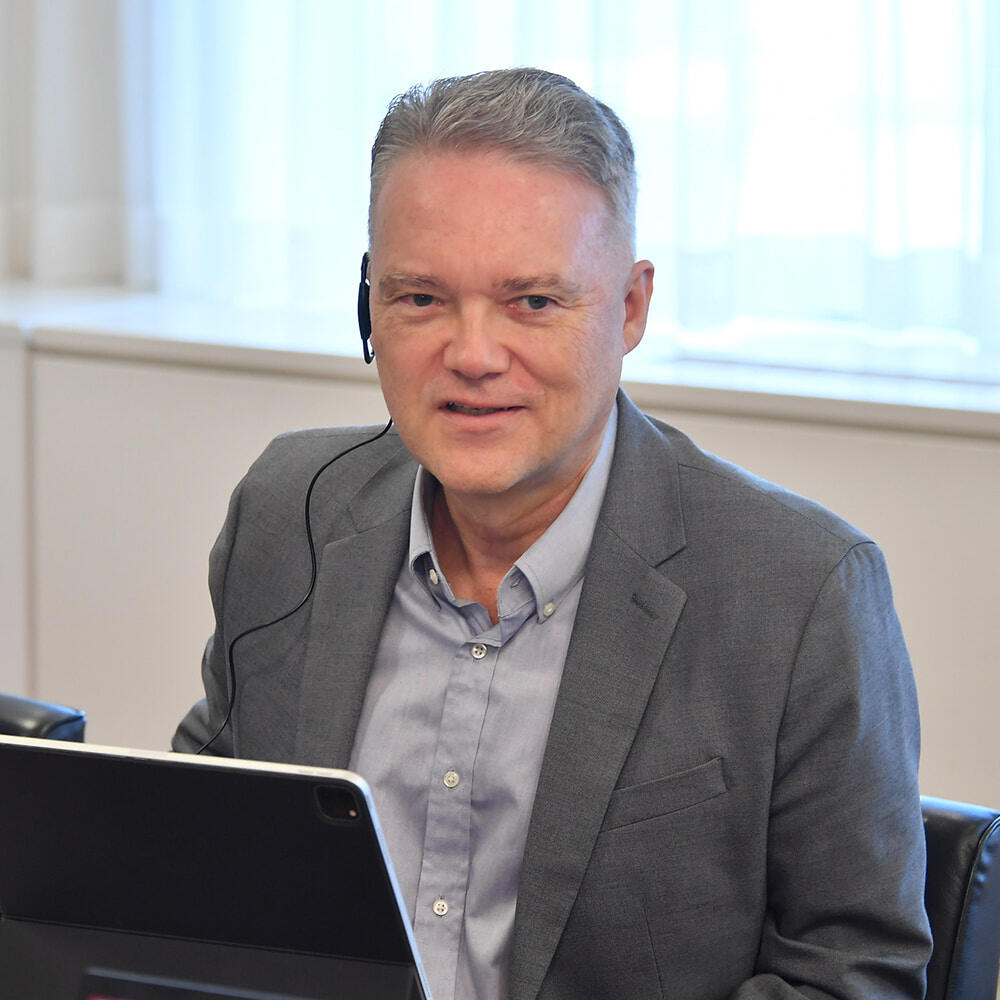
Mr. Randy Durband
Randy Durband is CEO of the Global Sustainable Tourism Council (GSTC), a UN-founded NGO that develops and manages international standards for sustainable tourism. He has held senior management positions with major U.S. outbound tour operators. He is also an active advisor and speaker to governments and corporations on sustainable tourism policies and implementation.
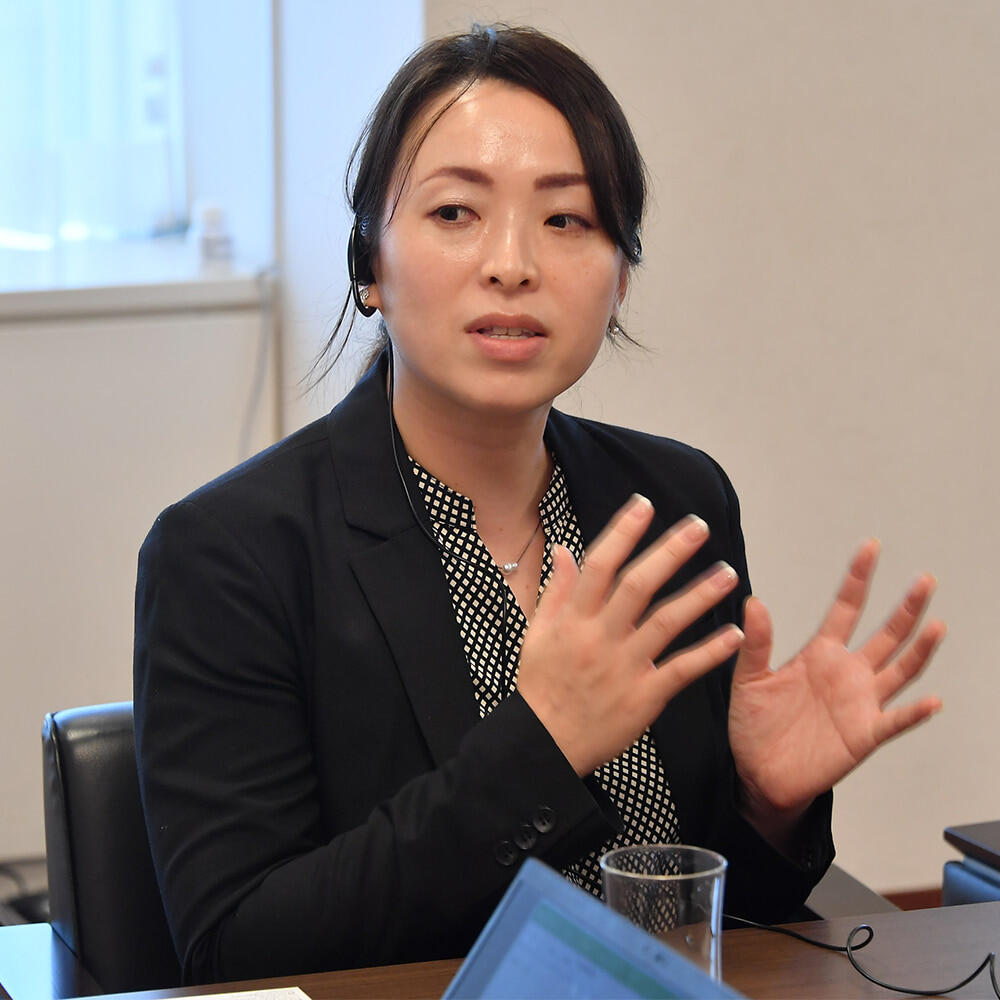
Ms. Emi Kaiwa
Asia Pacific Manager of Global Sustainable Tourism Council (GSTC), she is in charge of all operations including membership, training and conferences in Japan. She is also in charge of the Criteria Development for MICE and Attraction currently under development.
JTB
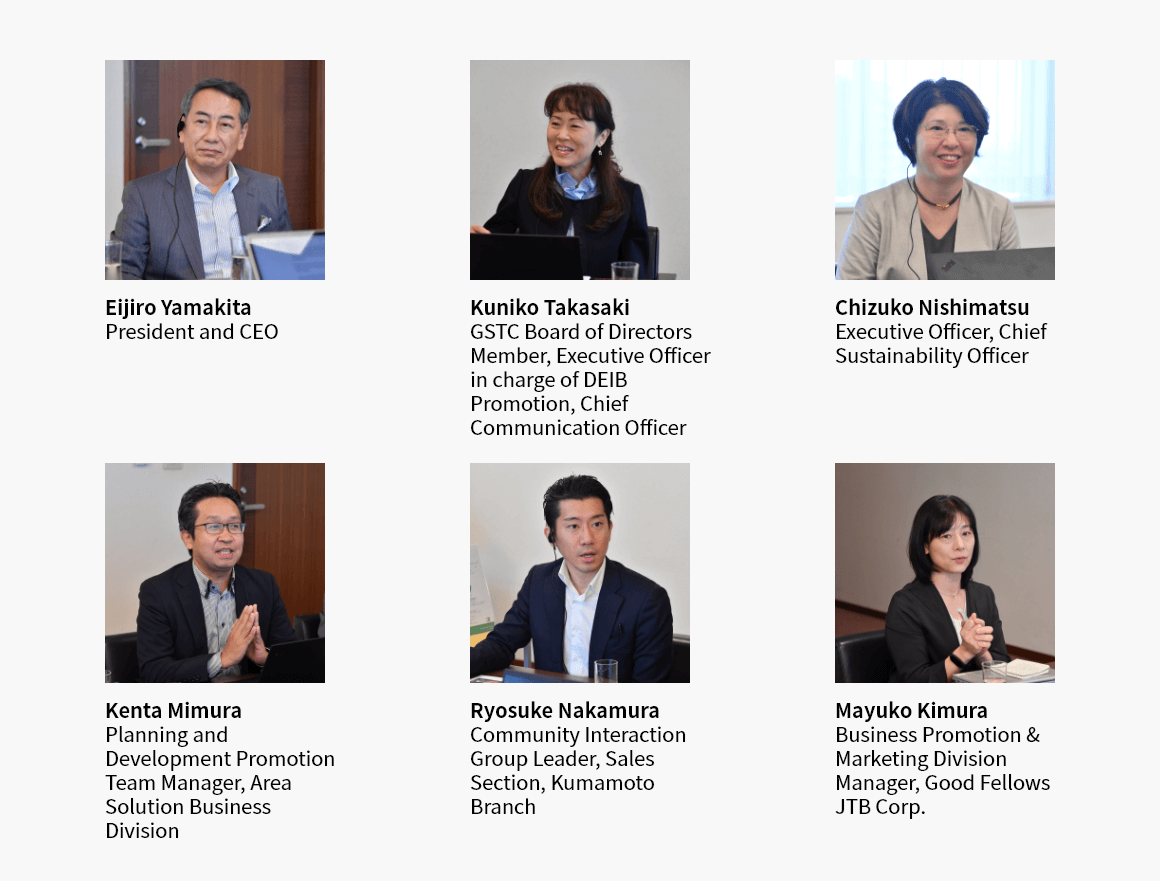
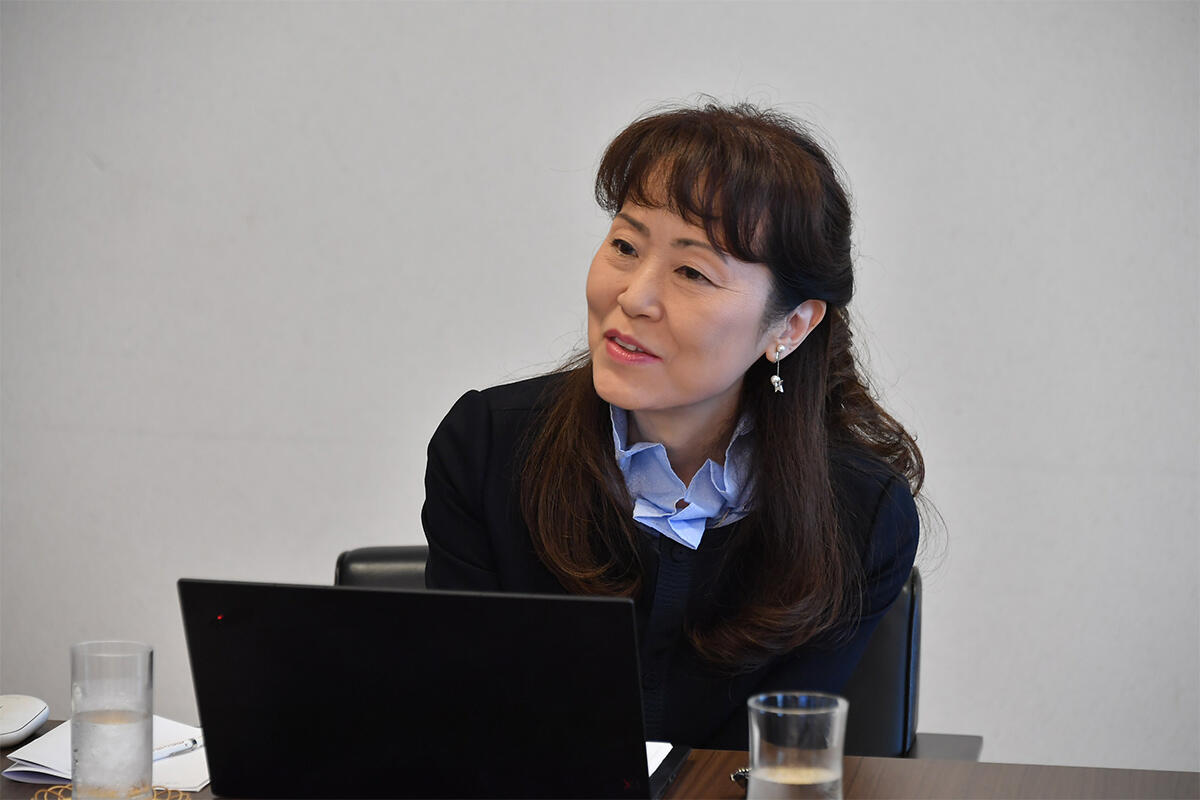
Kuniko Takasaki
Moderator (Takasaki):Today, we would like to discuss support for sustainable tourism destination management under the theme of searching for further potential from the FY2022 ALL JTB AWARD Sustainability Prize* winner initiative. First, can we please have a representative of the Kumamoto Branch, which is an award winner in the category, explain the initiative that made Nabegataki Waterfalls, the largest tourism resource in the Ogunigou , recognized as a sustainable tourism destination?
※ The Award in the category is given to comprehensively outstanding products, services, businesses, systems, and internal organizational activities of the JTB Group in terms of contribution to sustainability, impact on business growth, and clarity and achievement level of KPIs.
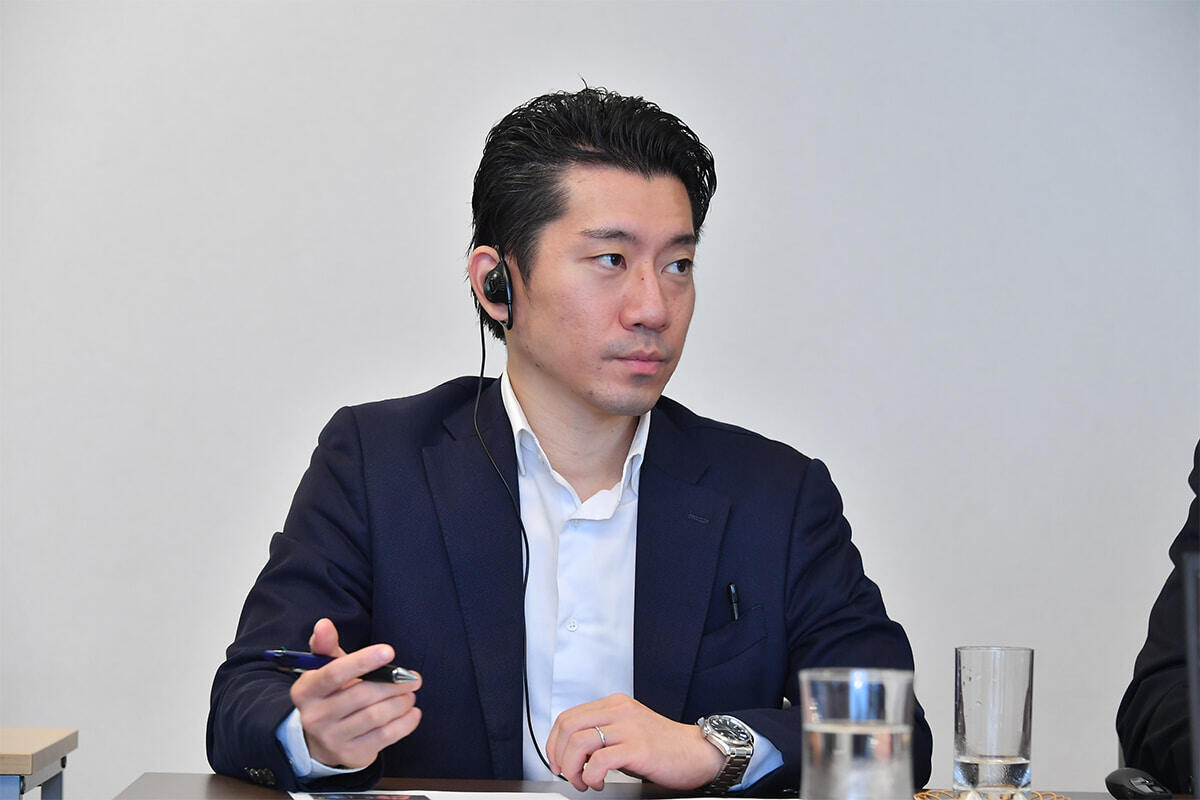
Ryosuke Nakamura
Nakamura:We received the award in recognition of the initiative for Nabegataki Waterfalls in the town of Oguni in Aso, Kumamoto. Nabegataki Waterfalls was selected as one of the top 100 sustainable tourism destinations in the world. The waterfalls had faced overtourism during its peak seasons for more than 20 years since its opening, but through a tie-up with our company and Good Fellows JTB from the 2021 fiscal year, problems from overtourism such as traffic congestion were successfully resolved.
Specifically, we introduced a booking system with Ticket HUB provided by Good Fellows JTB and carried out surveys on the movement of visitors. By analyzing visitor data such as busy times of the day and the number of visitors sharing one car and introducing the booking system, we alleviated traffic congestion. Since paper tickets were replaced by online tickets, we were also able to reduce paper use and CO2 emissions associated with the paper use.
Now, visitors no longer get stuck in traffic and local residents feel less stress in their daily lives in terms of traffic. In addition, we earned a profit. We were able to create an ideal situation.
Kimura:Ticket HUB digitalizes tickets for entry into events and tourism destinations and functions as a platform for use by various sellers. You can complete visitor check-in simply by scanning the two-dimensional barcode on tickets with a smartphone app.
It became commonly known in JTB that Ticket HUB can control entry into events. Partly because of that, Ticket HUB's system is also used to prevent traffic jams during the busy autumn foliage viewing season through a feature to specify the dates and times of visits to tourism destinations.
Mimura:I think the initiative for Nabegataki Waterfalls is an outstanding case example of how the passion of sales representatives at the branch for resolving challenges faced by the region led to specific achievements. The first point of leading the initiative to success is the detailed response by staff members in every single process such as explanation of the system to related people in the region and education on the booking of parking lots. The second point is that the initiative utilizes the power of digital technology and the power of people. Also, as an Area Solution Business as a whole, we would like to solve challenges faced by the regions by integrating digital technology with human skills. The initiative is a perfect successful case example.
Moderator (Takasaki):Can you explain other case examples in the Area Solution Business?
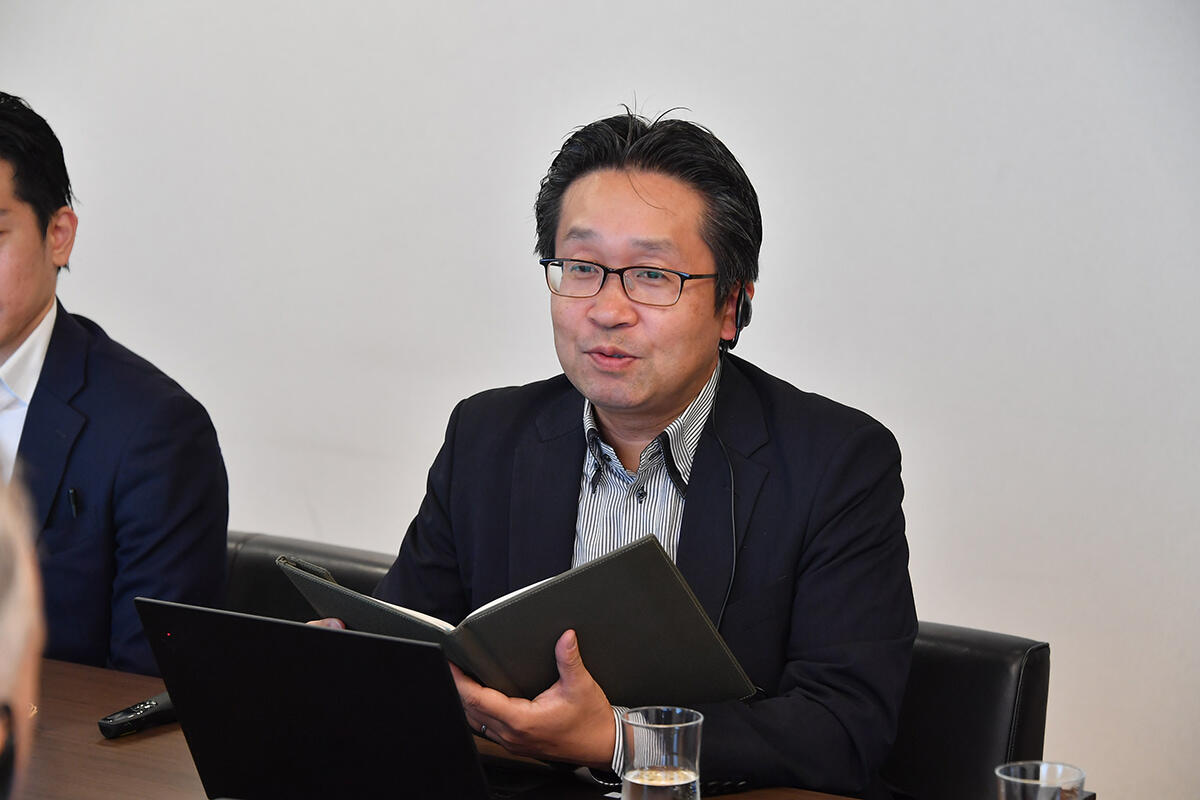
Kenta Mimura
Mimura:Our Area Solution Business offers services that take advantage of both technology and our knowledge as professionals in tourism that has been cultivated for over a century.
One example is a joint business with a venture company using a communication tool called Kotozna In-room. This tool realizes smooth communication between hotel or inn staff members and guests during their stays.
In addition to Kotozna In-room and other digital services using the smartphones and other devices of guests, we also promote the JTB Data Connect HUB service where hotels digitally store data by connecting to PMS, which is a core system of hotels. These services not only increase convenience for guests but also significantly reduce the work of hotel staff members. Data linkage allows hotel staff members to focus on in-person service.
Randy:I think the use of digital data presents a great opportunity for tourism and is in line with what we are doing at GSTC. The Nabeketaki initiative was a very unusual and brilliant effort, with the private sector taking the lead.
I would also like to share with you some examples from around the world. One example is Dubrovnik in Croatia, a historic tourist destination that suffered from overtourism, but they worked very successfully to ensure that all cruise ships did not dock at once, and that the docking times were spread out. community social and economic impact, environmental responsiveness, etc., and proceeded with research.
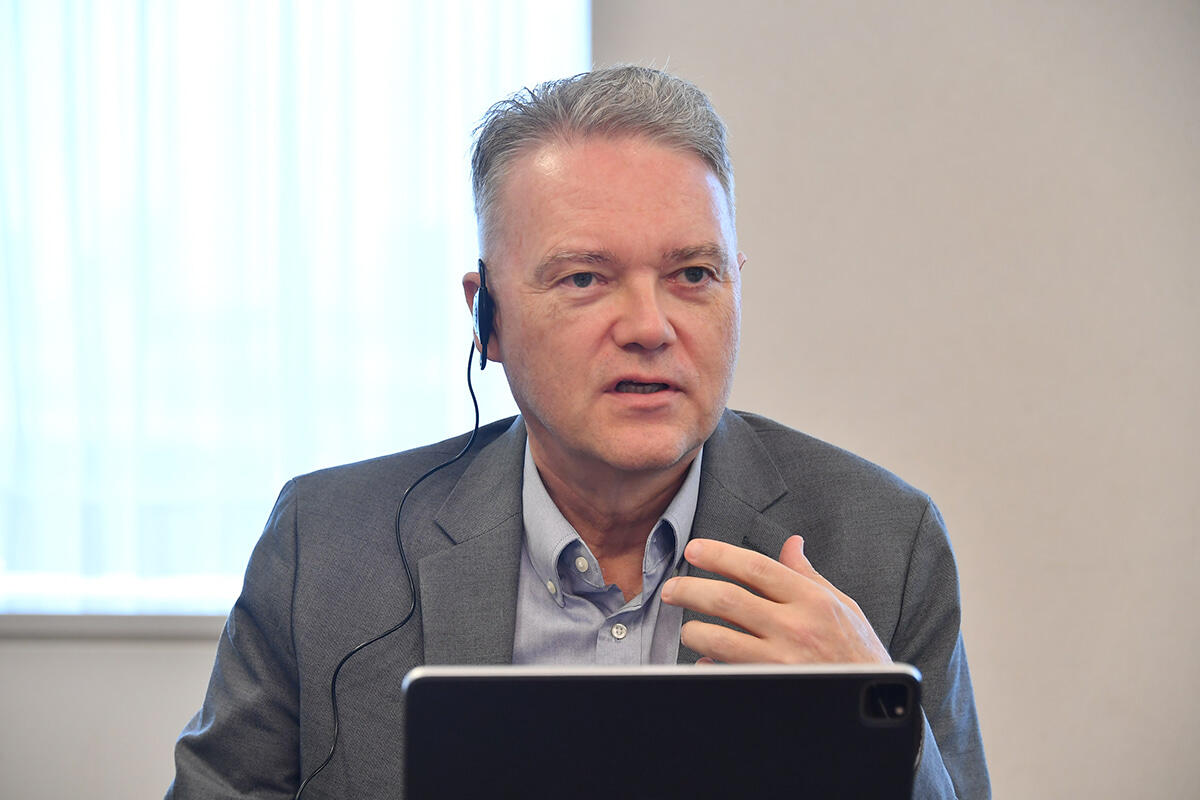
Mr. Randy Durband
Another example is the Singapore government's Sustainability Strategy, which was undertaken by the Singapore Tourism Board (STB). Targets were set for hotels to gain sustainable certification and to reduce their CO2 emissions. There were also grants provided by the public sector. These are examples of strong public sector leadership, but the key to success was the involvement of the private sector.
Next, here is an example of a private sector initiative. Royal Caribbean Cruise Line, the world's second largest cruise line. This is an example of working directly with GSTC and also with WWF. They established targets for carbon reduction on each of their many ships, and set other targets. One target is for sustainable certification of the tour operators they contract with to operate shore excursions. They exceeded early targets and are continuing the program. I think this is a success story that has resulted in sustainable operations.
Royal Caribbean Cruise Line has a bidding policy in place before they sign a contract. This means that those that are certified for sustainability can get the contract, so tour operators are now aware that there is a tremendous opportunity for their business if they implement sustainability, and this has changed their thinking dramatically. Royal Caribbean has also helped its competitors move in a similar direction.
New technologies and ways of thinking are advancing, but I encourage everyone to think about what is the right approach for you. We set targets for our suppliers, our offices and departments in each of the 47 prefectures. I believe that these efforts will build on each other.
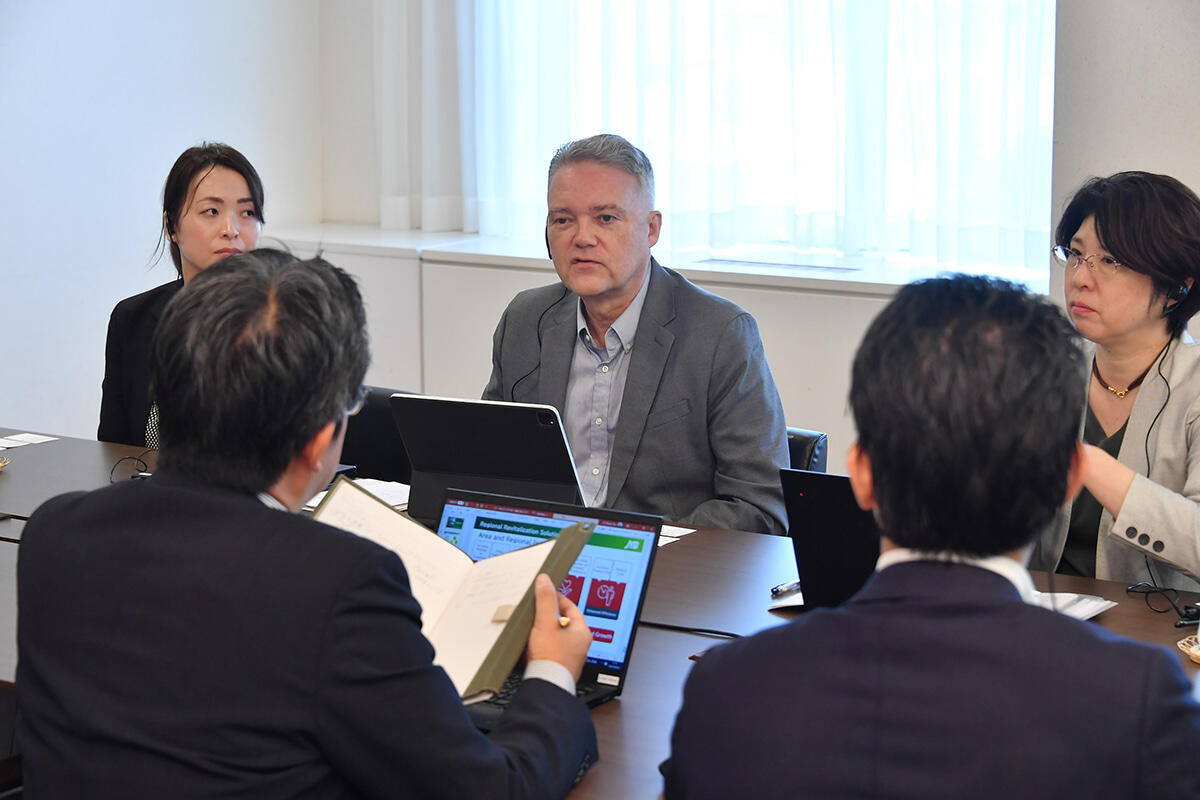
Mimura:We once again confirmed that participation not only by the public sector but also by the private sector allows the regions to grow sustainably. I think it is important to coordinate business operators and create a community to work on the sustainable growth of the regions as one.
Many business operators in the tourism industry in Japan are small and medium-sized enterprises and they have financial limitations including fund use options. Therefore, through data provision, we would like to offer support leading to data use, capturing customers, and promotion. In addition, including the implementation of surveys on awareness of consideration for the environment, we would like to present proposals for the creation of sustainable tourism destinations by combining such data.
Randy:I listened with interest to your point about small business involvement. I would like to see something that can be used by small hotels, inns, and other small businesses. I think we need a solution that is unique to Japan, where small ryokans are spread all over the country. It may be very important to have something that can be handled even if there are no data management experts in the company. This means making it easy to use and not burdensome.
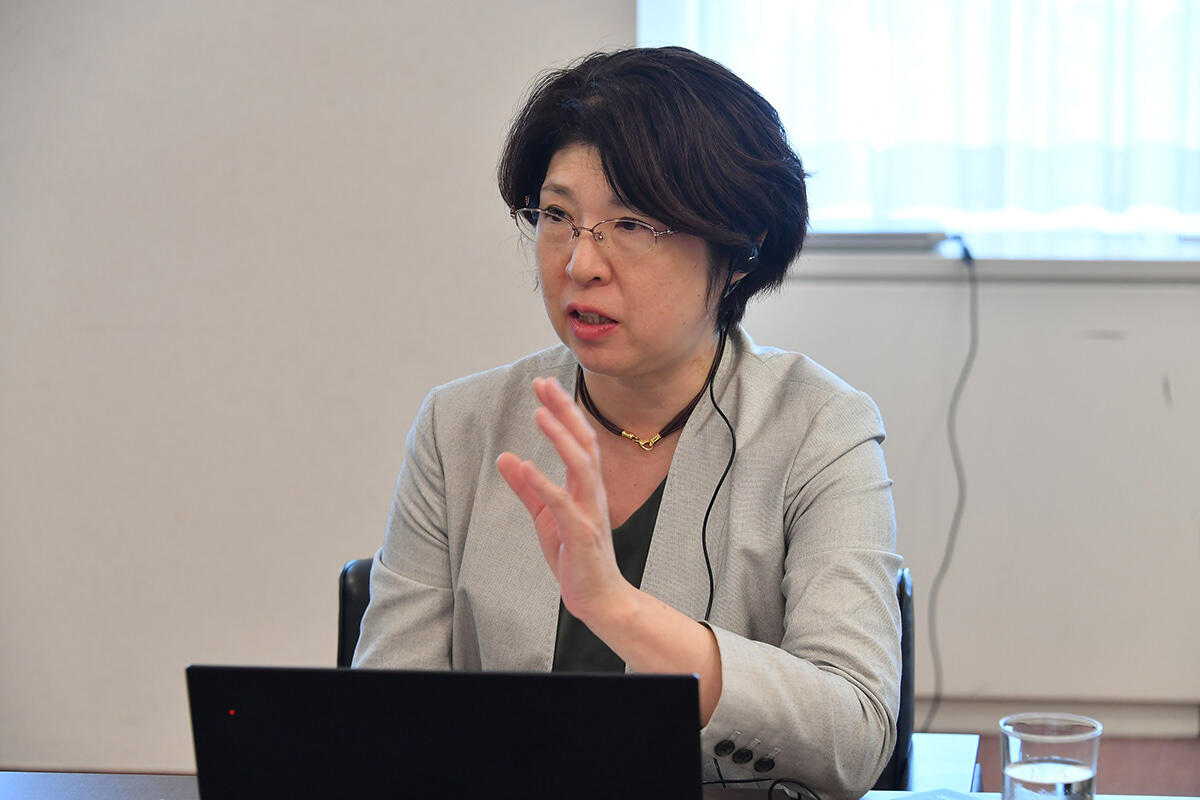
Chizuko Nishimatsu
Nishimatsu:Offering solutions to small and medium-sized inns and hotels is a large task but I believe that is what JTB should work on. I think our strength is preparing a wide variety of solution menus for challenges including the visualization of CO2 emissions in systems such as Ticket HUB and offering customized solutions that meet individual customer needs. In regards to this matter, do you have any suggestions for other items to be visualized?
Randy:Food waste is also an issue. If food waste is not handled properly, it enters landfills and generates methane, which results in CO2 emissions, but it is not well recognized. I think we can improve that area as well. The same goes for plastic waste.
Kaiwa:I think local governments around Japan are under pressure because the national government has set a goal that they must become more sustainable from now on. There are many destinations that do not know what to do. We often hear about problems with manpower, digital knowledge, and new ideas, so I suggest finding such areas and improving them by bringing in people from the private sector like JTB.
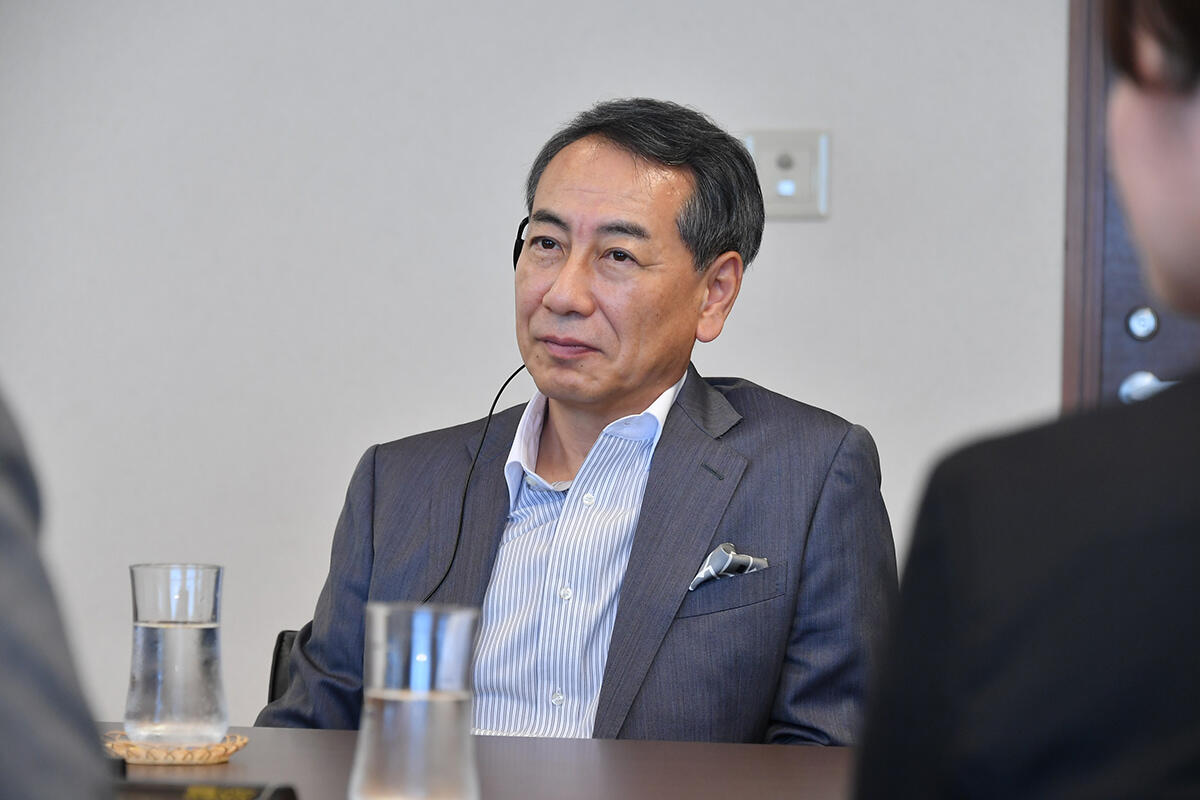
Eijiro Yamakita
Yamakita:In the perspective of having a positive impact on our business partners as the private sector, can you tell us about any reference examples for building cooperative relationships with small and medium-sized enterprises?
Randy:Preference agreements are one of them. It is not mandatory, but when there are multiple bidders, if they meet a few items, they will be given priority for the contract. First, I think it is important to focus on training and education. It is also necessary to package low-cost training programs and provide knowledge and tools to small and medium-sized enterprises.
Nakamura:This year, we had another extremely hot summer, which made me wonder if our children's generation will be able to live normally when they become adults if these hot summers continue. Can you tell us your thoughts about things close to us that we can start to consciously work on and what we can do for the future?
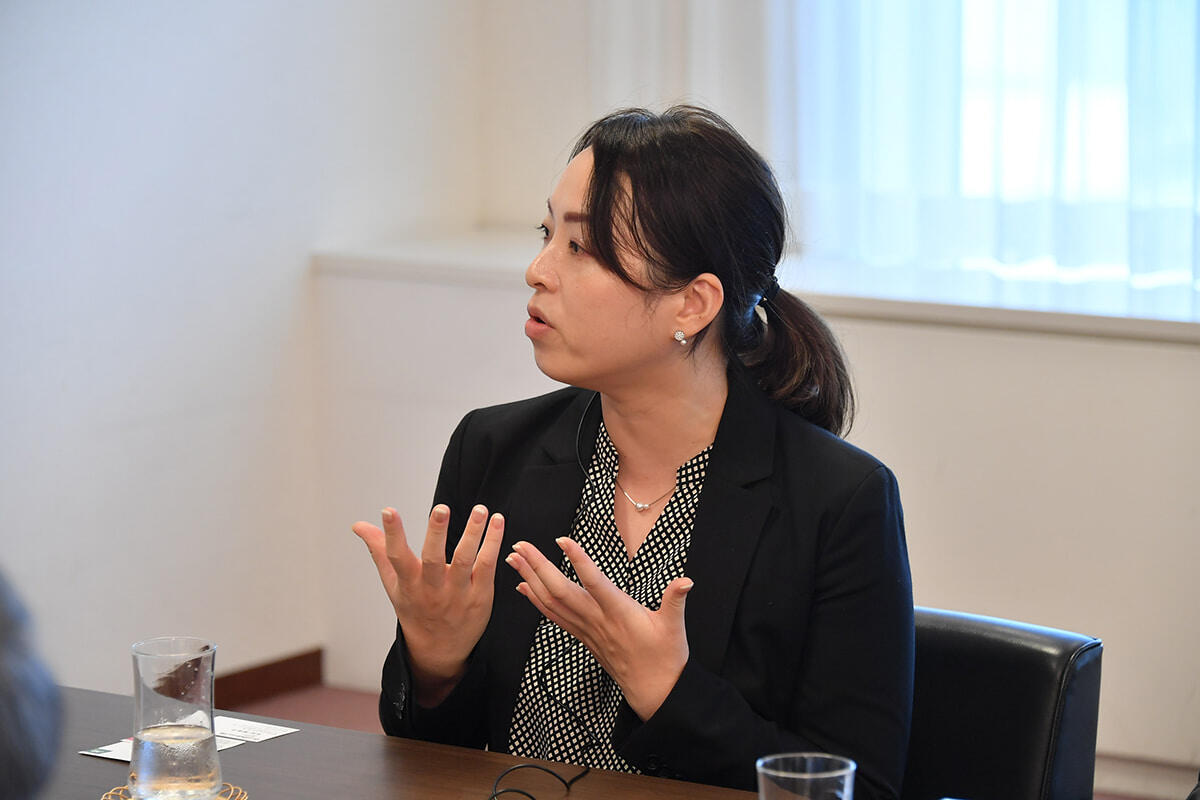
Ms. Emi Kaiwa
Kaiwa:WWF has made a declaration that we should have "sustainable living on one planet.' It is said that if we want to live in our current condition and lifestyle, we need about 1.75 Earths. In order to change this situation, it is important to inform young children about the current situation. Nowadays, even in Japanese education, the SDGs are being taught to lower-grade children at school. If this way of thinking becomes the norm from an early age, it will change the decisions they make when they become adults and go out into the world, for example, when they manage a company to make a decision. If sustainability is at the core of these action guidelines, I think it will have an impact on the industrial world as well.
Randy:First of all, it is necessary for practitioners to understand what they have to do. And managers, large and small, must raise awareness. When people ask me why tourism has to be sustainable, I answer that it is the same for any business.
Surveys such as Booking.com show that the attitude of travelers all over the world has changed dramatically. They say that customers are not demanding sustainability at time of purchase, instead deciding based on price and service, but sustainability is being demanded more and more on the ground. It is necessary to point out that we cannot think in the same way as in the past. It is not only about what hotels and tour operators should do, but also what they should do as managers and business owners in a systematic and measurable way.
Mimura:Since our division also creates new business models, systems, and structures, I feel it is important to create business models with the focus on solving challenges together with small and medium-sized enterprises. We would like to educate and promote to small and medium-sized enterprises that working together is good for their business, region, and society.
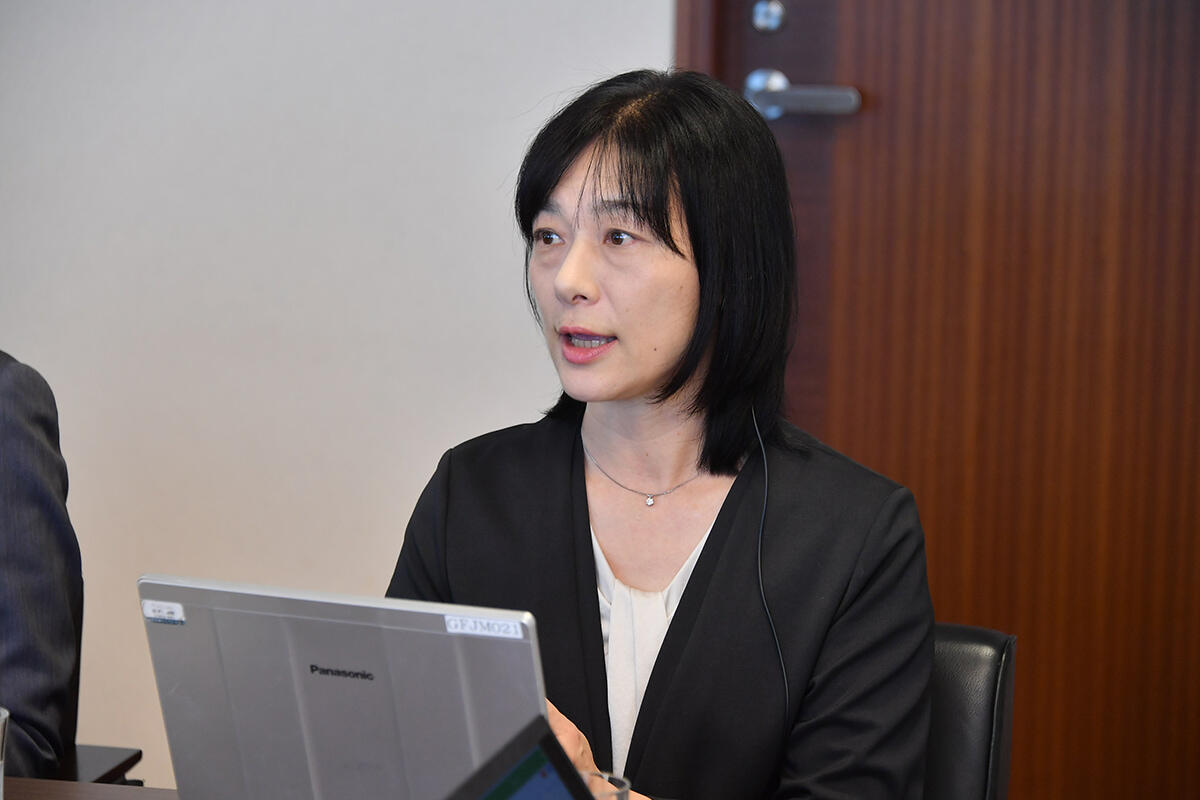
Mayuko Kimura
Kimura:I feel raising awareness of each individual is extremely important. I realized that properly considering sustainability in business is very important and indispensable.
Yamakita:We must be aware that we have to work on sustainability for sure. It does not matter who takes leadership whether it be the public sector or the private sector. We need a system that functions as a whole. As we saw in the case example today, once again, I realized that solving challenges with technology and providing platforms which business operators can use regardless of whether they have the capability to develop such systems on their own is very meaningful. We must steadily and continuously work on education and raising awareness. Moreover, we continue to make improvements for the visualization of CO2 emissions and verification of figures based on the facts.
The JTB Group's strengths include its country-wide network in Japan. We would like to make full use of the advantage of our capability of working on these activities while talking with people in person. Our business is extensive, which is another one of our strengths. We are not a company that simply makes travel bookings and arranges trips. The JTB Group's extensive business realizes the provision of tailor-made solutions for visitors, those working to make their regions better, and those who engage in corporate activity in each perspective. I believe this strength will realize our great contribution to this activity.
Moderator(Takasaki):The JTB Group's Mission is to 'foster peace and global interconnectedness by creating opportunities for meaningful human interaction,' and we are proud to say that this mission is sustainability itself.
Starting with support for sustainable tourism destination management, we think it is extremely important that we take leadership in accelerating and evolving initiatives for sustainability.
This event was held using CO₂ Zero MICE®.

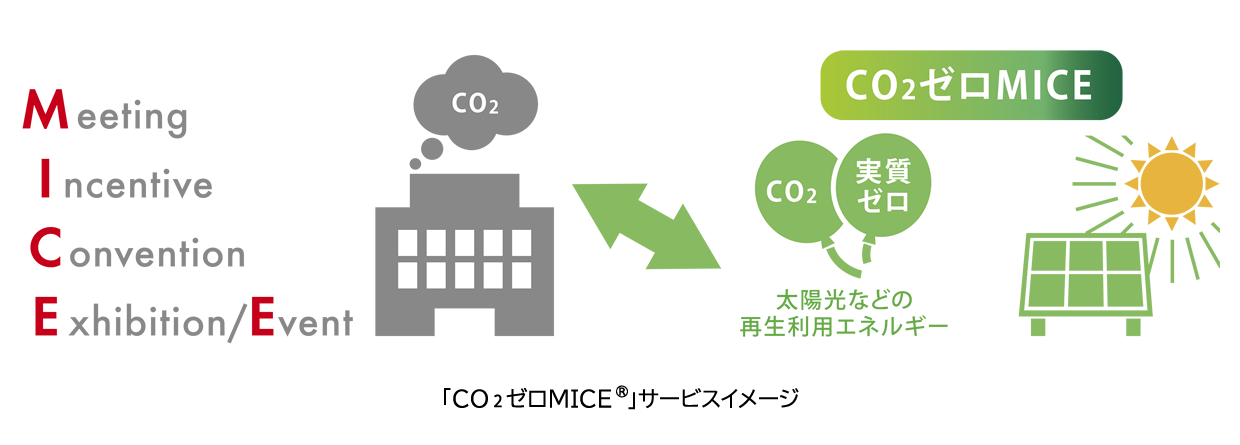
What is CO₂ Zero MICE®
CO₂ Zero MICE® is a service that enables the electricity used at the venue of MICE events to be replaced by renewable energy, thereby reducing CO2 emissions to practically zero.
This packaged product includes procuring renewable energy, calculating the amount of energy used as the environmental value of the renewable energy, and post-event verification.
Share this article





